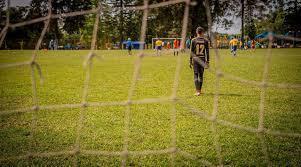
Sleep is a fundamental aspect of our health and well-being, yet many of us struggle to get enough of it. With new research emerging, our understanding of how much sleep we truly need is evolving. This article delves into the latest findings on sleep, exploring how much sleep you really need and the profound impact it has on your health.
Sleep is essential for various bodily functions, including cognitive performance, emotional stability, and physical health. During sleep, the body undergoes crucial processes such as muscle repair, memory consolidation, and hormone regulation. Without adequate sleep, these processes are disrupted, leading to numerous health issues.
While the traditional recommendation has been 7-9 hours of sleep per night for adults, new research suggests that sleep needs can vary based on age, lifestyle, and individual differences. Here’s a breakdown of sleep recommendations by age group:
Lack of adequate sleep can have severe consequences on health and daily functioning, including:
Understanding how much sleep you need is crucial for maintaining optimal health and well-being. While the general recommendation of 7-9 hours per night holds true for most adults, individual sleep needs can vary. By prioritizing sleep and adopting healthy sleep habits, you can improve your overall quality of life and reduce the risk of sleep-related health issues. Stay informed about the latest sleep research and make adjustments to your routine to ensure you’re getting the rest you need.
#trending #latest #medical

How [Athlete's Name] Is Changing the Game On and Off the Field...Read More.

The Impact of Social Media on Today's Top Athletes...Read More.
 Top 10 Fashion Trends for Summer 2024
Top 10 Fashion Trends for Summer 2024
Top 10 Fashion Trends for Summer 2024
 India Decides: Latest Updates on General Election Results 2024
India Decides: Latest Updates on General Election Results 2024
Stay Informed with Real-Time Coverage and Analysis
 Mallikarjun Kharge's suggestion of "new partners" hints at potential shifts in coalition dynamics regarding government formation.
Mallikarjun Kharge's suggestion of "new partners" hints at potential shifts in coalition dynamics regarding government formation.
Both the TDP and the JDU have been allies of the Congress in the past.
 UP Election 2024 Results Highlights: Major Upset for BJP-Led NDA as INDIA Bloc Secures Significant Victory
UP Election 2024 Results Highlights: Major Upset for BJP-Led NDA as INDIA Bloc Secures Significant Victory
India's most politically significant state, Uttar Pradesh, became the arena for a fierce showdown be
 Election Results 2024 Highlights: Celebrations at BJP Headquarters as NDA Prepares for 3rd Term, INDIA Alliance Makes Strong Showing
Election Results 2024 Highlights: Celebrations at BJP Headquarters as NDA Prepares for 3rd Term, INDIA Alliance Makes Strong Showing
2024 Election Results Highlights: Poll Pundits Predicted a Third Term for PM Narendra Modi, but BJP'
How [Athlete's Name] Is Changing the Game On and Off the Field

How [Athlete's Name] Is Changing the Game On and Off the Field
The Impact of Social Media on Today's Top Athletes

The Impact of Social Media on Today's Top Athletes
Off the Court: [Athlete's Name]'s Ventures Beyond Sports

Off the Court: [Athlete's Name]'s Ventures Beyond Sports
The Most Iconic Moments in [Athlete's Name]'s Career

The Most Iconic Moments in [Athlete's Name]'s Career
How [Athlete's Name] Balances Fame and Family Life

How [Athlete's Name] Balances Fame and Family Life
The Style Game: How Athletes Are Setting Fashion Trends

The Style Game: How Athletes Are Setting Fashion Trends
From Injury to Victory: Comeback Stories of Elite Athletes

From Injury to Victory: Comeback Stories of Elite Athletes
The Ultimate Fitness Routine: How [Athlete's Name] Stays in Shape

The Ultimate Fitness Routine: How [Athlete's Name] Stays in Shape
Inside the Mind of a Champion: [Athlete's Name]'s Winning Mentality

Inside the Mind of a Champion: [Athlete's Name]'s Winning Mentality
Beyond the Field: The Charitable Work of [Athlete's Name]

Beyond the Field: The Charitable Work of [Athlete's Name]
Legends in the Making: The Next Generation of Sports Icons

Legends in the Making: The Next Generation of Sports Icons
Trailblazers: Female Athletes Who Are Dominating the Sports World

Trailblazers: Female Athletes Who Are Dominating the Sports World
The Evolution of [Sport]: How Athletes Have Changed the Game

The Evolution of [Sport]: How Athletes Have Changed the Game
Breaking Barriers: Athletes Who Redefined the GameBreaking Barriers: Athletes Who Redefined the Game

Breaking Barriers: Athletes Who Redefined the Game
The Secrets to [Athlete's Name]'s Training Regimen

The Secrets to [Athlete's Name]'s Training Regimen
From Rookie to Pro: The Inspiring Journey of [Athlete's Name]

From Rookie to Pro: The Inspiring Journey of [Athlete's Name]
Behind the Scenes: A Day in the Life of [Athlete's Name]

Behind the Scenes: A Day in the Life of [Athlete's Name]
Plot no 90, Ganpativilla, sahibabad Ghaziabad UP 201005
+91 8585968676
info@trendingblogsea.com
© techtell. All Rights Reserved.